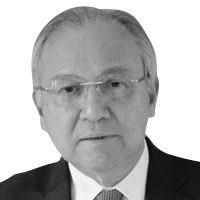The drug problem: Our biggest curse

Early on, President Duterte’s war against illegal drugs stirred a lot of controversy especially among his critics. But let’s face it: illegal drugs is – and continues to be – the biggest curse plaguing our country today. We all know what it can do, not only to people’s lives but what it can do to the moral fabric of the country. Not to mention the fact that we came close to becoming a narco state.
In Washington, D.C., I am pleased to say that the conversation about human rights in relation to drugs has somewhat diminished. We managed to show the Marawi siege as an example of the connection between illegal drugs and terrorist activities.
Once again, the magnitude of the illegal drugs trade was put into focus after revelations coming out of the Senate Blue Ribbon Committee hearings regarding the thriving drugs trade inside the New Bilibid Prison in Muntinlupa. Clearly, Bureau of Corrections officials are heavily involved, prompting people to rename it the “Bureau of Corruption.”
Drug lords serving time in prison continue to run their thriving businesses within the walls of the penitentiary. Imagine, even the prison hospital is being used as a cover for the drug lords to transact their businesses. Drug lords pay to get hospital passes pretending to be sick inmates inside the hospital ward.
Three years ago, President Duterte warned about the existence of a drug ring inside the national penitentiary, accusing some local officials as complicit. Former Criminal Investigation and Detection Group chief and now Baguio mayor Benjie Magalong also disclosed that during legitimate drug raids, high-ranking police officials would only declare a small portion of the seized drugs in their report and keep the bigger portion for future “sales.”
The same revelations were made by Philippine Drug Enforcement Agency chief Aaron Aquino. These corrupt officials are also engaged in the “drug recycling” business by reselling the confiscated drugs back into the streets or using them to plant evidence for extortion.
A more disturbing development is the possibility that online shopping sites and even delivery apps are being used as distribution channels for illegal drugs and even paraphernalia such as tooters. Separate buy-bust operations recently conducted against two suspected pushers (a nurse and a licensed pharmacist) yielded more than half a million worth of illegal drugs that include shabu, high-grade marijuana and various drug paraphernalia, with the suspects admitting that they use certain online apps and courier services to deliver the illicit goods to their customers.
A 2016 report by the Rand Corporation discussed the “internet-facilitated drug trade” and the role of the “dark web” where anonymous buyers and sellers transact. (The dark web as its name implies is a “shadowy network” where encrypted data is stored in databases that are not easily accessible.)
Many of those who doubted the president’s motive in launching the drug war now realize how extensive and horrific this problem has become. We have no doubt most heinous crimes are committed by those under the influence of drugs when they commit rape, murder and other gruesome crimes.
The information that is coming out from the Senate Blue Ribbon committee should convince people about the breadth and depth of the drug problem in our country. This billion-peso trade has become extensive and endemic, with 97 percent of barangays in the country already infiltrated.
According to the 2019 International Narcotics Control and Strategy Report of the US State Department, “the Philippines remains a regional transit and destination point for illicit drug trafficking, particularly for methamphetamine and its precursors from China,” with shabu and marijuana as the most widely consumed drugs in the Philippines. Citing statistics from PDEA, the 2019 INCSR report cited critical entry points being used by drug trafficking organizations: 68 major seaports; 11 international airports, a 22,548-mile coastline and the mail and parcel system that serve as both transshipment and drop-off points to smuggle drug shipments.
I am extremely pleased that our friends in the US Congress are beginning to understand better the critical situation we are in today. Many US senators and congressmen see the effects of drug addiction in their own cities, with an estimated 68,000 Americans dying because of substance abuse just in 2018 alone.
A research by the Rand Corporation showed that Americans spent an estimated $146 billion in illegal drugs such as cocaine, marijuana and methamphetamines in 2016. Rand estimates that 3.2 million Americans are chronic methamphetamine users. The most worrisome however is the opioid problem which has reached “epidemic” proportions, with fentanyl emerging as the most lethal with more than 900 people dying of overdoses weekly.
In January, the Trump administration released the National Drug Control Strategy that outlines the US government’s priorities to address the problem of illegal drug use and trafficking. The top priority is saving American lives, and the US government will be “relentless in [its] efforts to tackle the scourge of addiction that has affected so many families and communities across the United States,” said Office of National Drug Control Policy director Jim Carroll.
The 2019 World Drug Report by the UN Office on Drugs and Crime showed that in 2017, “an estimated 271 million people, or 5.5 percent of the global population aged 15-64, had used drugs in the previous year, while 35 million people are estimated to be suffering from drug use disorders.”
No doubt, the drug problem is universal. All countries, rich or poor, must band together and fight this evil scourge that is perhaps as bad or even worse than nuclear proliferation – that could one day annihilate mankind.
* * *
Email: [email protected]
- Latest
- Trending





























